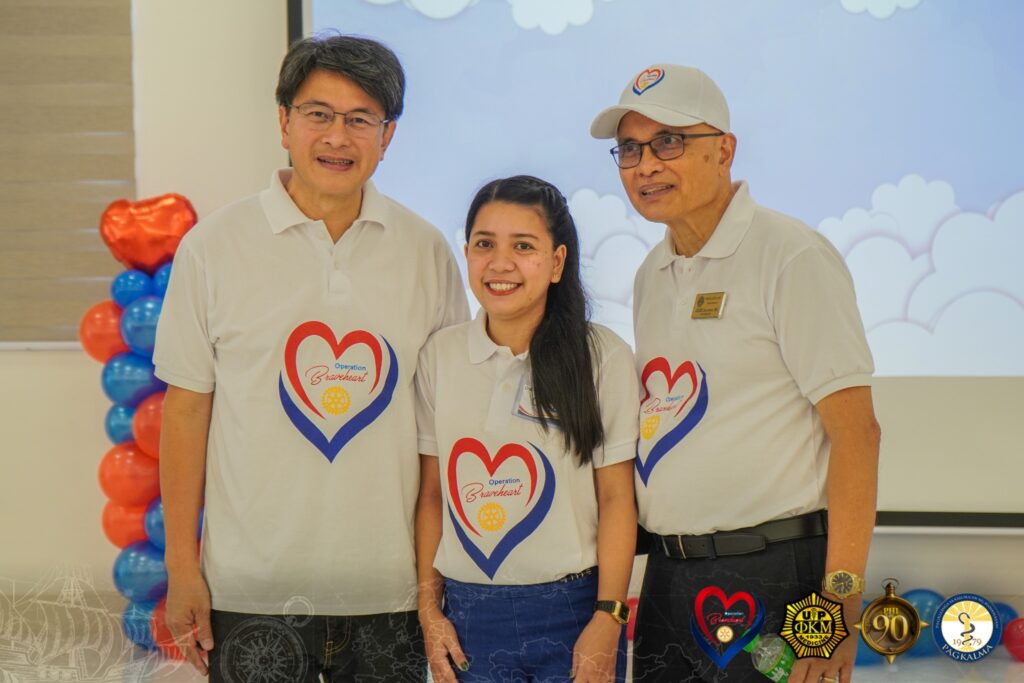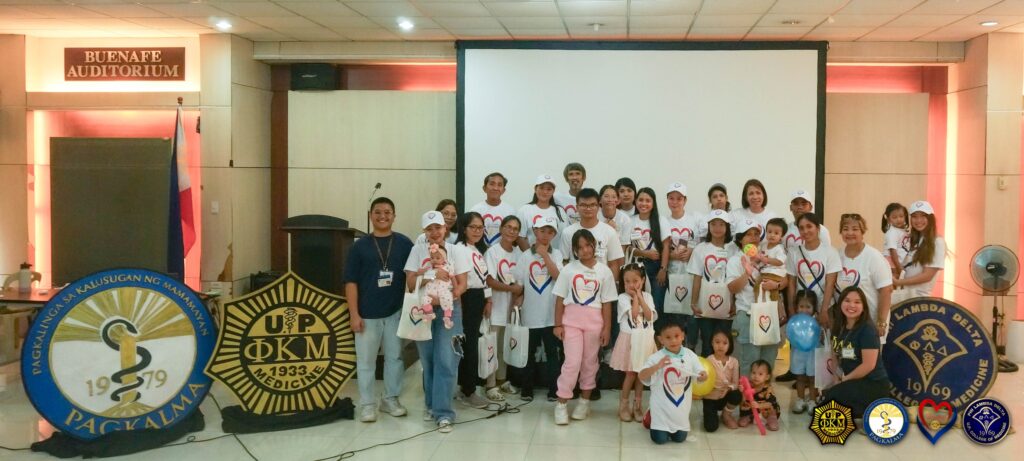by Louiejabe Yap Nuniala Φ2024
Central to the human experience of growing up is the idea of play — the language of children. Active play often serves as a canvas where children can explore their imaginations and hone their cognitive abilities, decision-making skills, and social behavior. Contrary to popular belief, allowing children to play is more than just about expending their energy; it is also about learning the very essence of what it means to be a human by growing holistically, expanding the mind, and forging social relationships with others. However, thousands of children — both in the Philippines and worldwide — suffer from congenital heart diseases that hinder them from engaging in active play. The pathophysiology of these diseases may be complex but in its simplest form, these conditions make children easily fatigued and exhausted from even the most effortless activities. Thus, these congenital heart defects hinder them from fully immersing in play and other day-to-day activities that are crucial to their developmental milestones. More than this, children are not only deprived of moments for physical expression and fun but they are also stripped away of the opportunity to experience life in all its messy and unpredictable forms which leads to the weaving of the very fabric of a child’s humanity.
To respond to the problems posed by congenital heart diseases to the physical, cognitive, mental, and emotional development of children, Rotary International launched Operation Braveheart last 2016 in partnership with the Phi Kappa Mu Fraternity and its service arm PagKalMa: Pagkalinga sa Kalusugan ng Mamamayan. Through the mobilization of private donors and benefactors, the Operation Braveheart is able to provide pro bono cardiac catheterizations to patients with congenital heart defects including patent ductus arteriosus (PDA), ventricular septal defect (VSD), and atrial septal defect (ASD). Since its conception eight years ago, the project has already helped around 230 patients, and their respective families, suffering from the mentioned inborn cardiovascular conditions which would have cost hundreds of thousands of pesos to repair. More than being able to seal the holes in the hearts of the patients, Operation Braveheart has also given them a second chance in building their futures by engaging in play and other activities that contribute to their holistic development.
The Beginning of a Legacy of Healing
At the core of Operation Braveheart’s conception is the story of service and brotherhood. Dr. Jose Jonas Diño Del Rosario Φ1986 is an interventional pediatric cardiologist who completed his fellowship at the Children’s Hospital of Philadelphia in the United States. Despite having lucrative job opportunities in the US after his training, Doc Jonas chose to go back home to the Philippines and heed the vocation of serving his countrymen by bringing back home his expertise in non-invasive pediatric catheterization techniques. Prior to the advent of minimally-invasive procedures, open heart surgery was the go-to procedure in treating congenital heart defects such as PDA, VSD, and ASD. However, Doc Jonas, as a pioneer of interventional pediatric cardiology, was able to introduce innovations such as the use of cardiac catheterization as the standard of care without surgically opening the chest to access the patient’s heart. This procedure led to shorter recovery time and overall better health outcomes for patients undergoing such procedures.
The idea of doing Operation Braveheart as an initiative was conceptualized during one of the Fraternity’s fellowship events. Doc Jonas approached lifetime Rotarian and Fraternity Brod, Dr. Jesus “Jess” Urbi Socrates Φ1969B with the idea of a minimally-invasive yet safe and effective procedure which almost guarantees instant improvement in the signs and symptoms experienced by thousands of patients suffering from congenital heart conditions. The only downside is that the cost of the device to be used in the procedure cannot be afforded by the majority of Filipino families. Thus, Doc Jess quickly mobilized family members, friends, and later on, other donors and benefactors, to not only contribute to the cause of Operation Braveheart but to believe its vision of giving second chances to children born with heart defects and securing their futures so they can strive to reach their dreams and potential. They were initially only fundraising for the procedure of one patient but due to the passion and commitment of Doc Jonas and Doc Jess to selfless service, they were already able to immediately raise funds for the catheterization of eight pediatric patients. Today, Operation Braveheart is being funded by Rotary International and the project is coordinated by the partnership of District 7390 Passport Club and the Rotary Club of Makati Southeast, along with generous contributions from members of the University of the Philippines Medical Society in America (UPMASA), friends and families and the alumni brods and sisses of the Phi Kappa Mu Fraternity and the Phi Lambda Delta Sorority.

Drawing the Future of Operation Braveheart
Due to the boundless support of its benefactors, Operation Braveheart has helped in transforming the lives of over 230 patients without a single mortality in its catheterization procedures. With the dedication of Doc Jonas in providing these procedures for free to indigent patients from across the Philippines, the initiative also served as an opportunity for student brods and sisses to learn about the conditions of the patients and hone their history-taking and clinical skills. In order to celebrate the success brought about by collaboration of the people behind the project and other like-minded organizations, the Phi Kappa Mu Fraternity and the Phi Lambda Delta Sorority also hold Camp Braveheart annually where children who benefited from the program are celebrated with fun activities such as games, clown shows, magic shows, and other forms of play in order to commemorate a turnstile in their lives where they get to experience being children once again — without any limitations to what they can do and achieve. The event also serves as an opportunity for patients to interact with the people behind the initiative. The real magic, however, emanates from seeing the children run around freely despite the fact that months ago, they were not even able to do simple day-to-day activities without being tired or fatigued.

The future of Operation Braveheart is contingent on the altruism and dedication to service of future physicians by providing their expertise as volunteer doctors for the program. Inspired by the unwavering commitment to helping others, medical students and professionals are challenged to match or even exceed the contributions of the likes of Doc Jonas in helping their communities and contributing to the legacy of this initiative. Furthermore, the continued financial support of generous donors is also the reason for the continued legacy of Operation Braveheart. Interested donors and benefactors may reach out to pkmsgotoffice@gmail.com
Over the next few weeks, the Phi Kappa Mu Fraternity will unveil the stories of the patients who received a second shot at life due to Operation Braveheart and the individuals behind its operation. Their stories highlight that more than just the idea of play, freeing children from the illnesses that limit them also means giving them the opportunity to unearth their full potential and aspire to be whoever they want to be in life. Many lives have been changed yet there remains an even greater number of patients and families still waiting for the help they so desperately need. With the continued support from the public, Operation Braveheart can continue its mission of transforming lives, one heart at a time.






